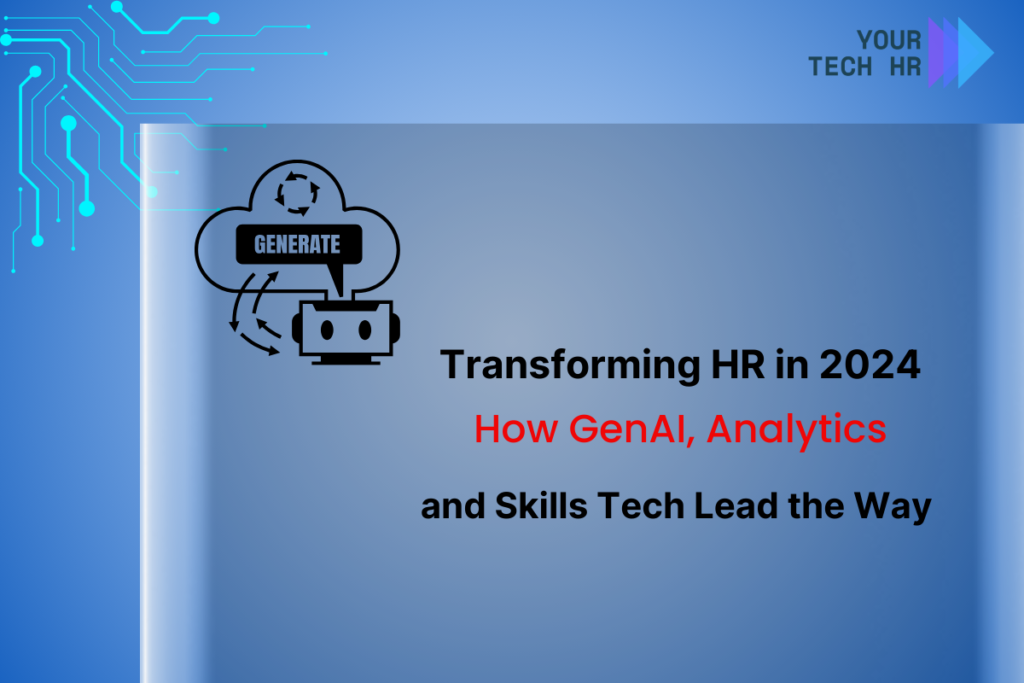As we advance into 2024, HR technology is undergoing transformative changes, driven by generative artificial intelligence (GenAI), predictive analytics, and skills technologies. These innovations can transform the human resources environment by enhancing the employee experience (EX), increasing compliance, and enabling improved talent management.
Embracing the Future with GenAI
HR functions are transitioning from experimenting with GenAI to adopting it more extensively. According to a Conference Board survey, 61% of CHROs plan to invest in AI to streamline HR processes this year. GenAI tools integrated within HRIS platforms will be utilized for writing job descriptions, creating engagement surveys, developing training modules, and more. Eser Rizaoglu, an analyst at Gartner, notes that while many HR leaders are at the beginning of their GenAI journeys, the technology’s adoption will accelerate through 2024.
However, the challenge remains in balancing GenAI’s potential with effective governance and ethical considerations. Michael Benyamin of Accenture highlights that GenAI can transform up to 40% of all working hours, not by eliminating jobs but by enhancing productivity and creativity.
Predictive Analytics: Enhancing Workforce Planning
Predictive analytics tools are becoming increasingly powerful, offering HR leaders deeper insights for workforce planning and data-driven decision-making. Juan Pablo Gonzalez of Korn Ferry points out that with improved algorithms and larger data sets, HR can moderate hiring cycles more effectively, fostering a stable workforce.
Despite its potential, many HR functions have yet to fully embrace data analytics. Mark Stelzner from IA stresses the importance of investing in the right tools and skills to leverage HR data, which is crucial for aligning HR strategies with broader business goals.
Skills Technologies: The Future of Talent Management
Skills technologies are revolutionizing HR by enabling skill-based hiring and promotion strategies. Advanced skills ontologies use AI and machine learning to maintain dynamic databases of employee skills, helping HR identify gaps and adjust recruitment and development plans. As Gretchen Alarcon of ServiceNow explains, having a rich and connected skills database is more valuable than simply having a large one, as it allows for better talent management decisions.
Navigating the EX-Recession
Some analysts predict an employee experience (EX) recession in 2024, with organizations focusing more on cost reduction and efficiency. However, experts warn against reducing EX investments. Forrester’s J.P. Gownder argues that mature EX programs drive productivity and lower attrition. Resourceful HR leaders will find ways to maintain engagement and invest in EX, even amid tighter budgets.
Change Management: Ensuring Technology Adoption
Ensuring employees adopt new HR technologies remains a challenge. Ben Eubanks of Lighthouse Research emphasizes that HR and talent technologies require significant behavioral changes for effective use. Changing management strategies will be critical in maximizing the return on technology investments.
The Road Ahead
As 2024 unfolds, HR leaders will continue to navigate the complexities of adopting GenAI, enhancing predictive analytics, and leveraging skills technologies. By focusing on these areas, organizations can simultaneously improve efficiency and regulation, and create a more engaging and productive work environment.
For more insights and the latest news on HR technology, follow YourTechHR. Stay updated with the trends shaping the future of human resources.


